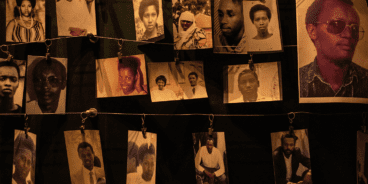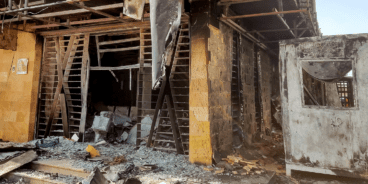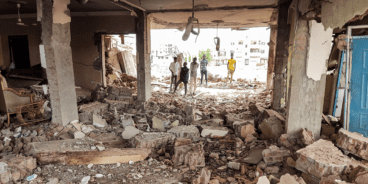Statement on the 25th Anniversary of the Genocide Against the Tutsi in Rwanda
This Sunday, 7 April, the international community will commemorate the 25th anniversary of the start of the genocide against the Tutsi in Rwanda. Over the course of a 100-day period between April and July of 1994 more than 800,000 Rwandans were murdered in the fastest genocide of the twentieth century. The United Nations (UN) and its member states failed to take early action to prevent the impending genocide. This was despite clear warnings during 1993 and early 1994 from Bacre Waly Ndiaye, then UN Special Rapporteur on Extrajudicial, Summary or Arbitrary Executions, and Gen. Roméo Dallaire, the Force Commander of the UN peacekeeping mission in Rwanda.
The horrific events that transpired during those 100 days later served as the impetus for all UN member states to unanimously commit themselves at the World Summit in 2005 to the Responsibility to Protect (R2P) populations from genocide, war crimes, ethnic cleansing and crimes against humanity. In doing so, states acknowledged that the world should no longer tolerate political indifference and inaction whenever and wherever populations face an imminent risk of mass atrocity crimes.
Since 2005 states have taken important steps to strengthen the Responsibility to Protect at both the international and domestic level. These initiatives include the creation of a Global Network of R2P Focal Points and the development of domestic and regional capacities to prevent genocide and other mass atrocity crimes. Since 2011 the UN Security Council has also invoked R2P when authorizing measures to protect civilians in Côte d’Ivoire, Libya, South Sudan, Mali, Central African Republic, Democratic Republic of the Congo, Somalia and elsewhere. More than 75 resolutions invoking the international community’s responsibility to protect have been adopted by the UN Security Council since 2006.
Despite these efforts, the gap between words and deeds remains and mass atrocity crimes continue to be committed in Syria, Myanmar, Yemen and other countries. All too often the effectiveness of the UN in responding to mass atrocity situations is still held prisoner to partisan political interests and/or the veto prerogative of the permanent members of the UN Security Council. The global assault on human rights norms and institutions has also weakened the international community’s ability to act in a comprehensive and consistent manner.
Preventing mass atrocity crimes is every government’s responsibility. States should continue to build support for R2P and ensure that it is consistently and effectively implemented. Government commitments should include:
• Joining the more than 60 countries who have appointed a national R2P Focal Point and become active in the Global Network;
• Joining the 117 states who have signed the ACT group’s “code of conduct regarding Security Council action against genocide, crimes against humanity and war crimes,” and actively supporting the French/Mexican initiative on veto restraint in mass atrocity situations;
• Pursuing justice and accountability by ratifying relevant legal instruments, including the Convention on the Prevention and Punishment of the Crime of Genocide and the Rome Statute of the International Criminal Court. States should also support the International, Impartial and Independent Mechanism for Syria, the UN Investigative Team for Accountability of Da’esh, the Independent Mechanism for Myanmar and all relevant institutions of international justice.
As we reflect upon the tragedy of the genocide in Rwanda, Dr. Simon Adams, Executive Director of the Global Centre for the Responsibility to Protect, noted, “The best way to honor the memory of all those who were targeted and killed in 1994 is to build a world where the international community permits no people to stand alone when threatened by genocide. The occasion of the 25th commemoration of the genocide against the Tutsi compels us to reflect, but also to act to uphold our collective responsibility to protect.”
Read Next
Related Publications

Atrocity Alert No. 389: Genocide Prevention and Awareness Month, Myanmar (Burma) and North Korea

Atrocity Alert No. 352: Sudan, Afghanistan and International Day for Countering Hate Speech
